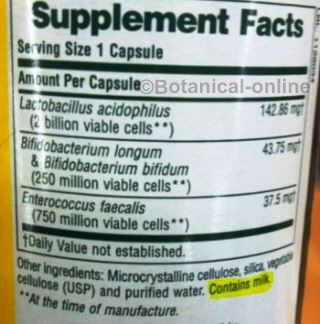Dangers of nutritional supplements
Precautions with vitamin supplements
Before using a vitamin or mineral supplement, it is recommended to consult a food composition table. Using food instead of supplements will be much more nutritious, cheaper, and in many cases better.
With a nutrition table in hand, when comparing the nutritional content of some supplements with foods, we will realize that some supplements contain trace amounts of vitamins and that there are large differences in quality between supplements.
Are multivitamins good?
Regular consumption of multivitamin supplements has not been shown to have any health benefits. Therefore, multivitamins are not recommended unless prescribed by a doctor or other health professional for a purpose. For example, it is necessary to administer various vitamins and minerals in very restrictive diets, as occurs in chronic renal failure. People who can eat normally should not take multivitamins.
- In healthy people, it is always more advisable for the diet to provide all the nutrients and to use supplements only for those nutrients whose requirements cannot be met through diet.
Is all supplementation equally effective?

All food supplements are, as their name indicates, supplements to a healthy diet. Supplements (and medications) only work when accompanied by a good diet and exercise, which are the cornerstones of health.
Even if a good quality nutritional supplement is taken, it is usually necessary to accompany the nutritional treatment with complementary therapies. For example, something as simple as getting enough sleep and reducing stress is essential to improve the vast majority of health conditions (poor digestion, heartburn, tiredness, depression, lack of concentration, hypertension, etc.).
Do vitamin supplements work?
The scientific studies that support many supplements are tested on certain populations (healthy people, sick people, men, women, young people, etc.). So their results can never be exactly extrapolated to the entire population or to a particular case.
The response to a supplement will depend on many individual factors, such as genetic, nutritional, dietary, environmental, psychological, lifestyle, etc.
*Related information: Contraindications of plant, vitamin and mineral supplements
Mineral supplements
Precautions with mineral supplements
As for mineral supplements, it should be noted that many minerals compete for their absorption, such as calcium, iron and magnesium.
Therefore, in principle it is not recommended to take mineral supplements with meals to avoid interfering with the absorption of other nutrients.
Magnesium supplements can have a slight laxative effect and should be avoided by people with diarrhea or diarrheal processes (irritable bowel). In these latter cases, the least laxative type of magnesium supplement is magnesium lactate.
Food allergy

People with food allergies should check labels to see if products contain allergens. For example, it is very common for probiotic supplements to contain milk because these bacteria are produced in dairy cultures. Therefore, many allergic to milk should purchase probiotics that claim to be dairy-free.
Supplements for celiacs or those allergic to gluten
To find out if a supplement is suitable for celiacs, you should check the label if they contain ingredients that are likely to contain gluten, such as flour, barley or wheat.
Many products do not specify their gluten-free content because in principle they should not contain it and therefore they do not carry out the necessary tests to verify that it is free of this component and to be able to put the seal on it. The best thing in these cases is to consult directly with the manufacturing company.
If adverse reactions appear, the treatment should be stopped and the product should be taken to the doctor.
Poor quality nutritional supplements
There is a huge variety of supplements on the market today. Although it is unusual, there have been cases of companies that sell poor quality products that do not correspond to the product they advertise or that do not follow the necessary hygienic measures for these supplements.
A supplement has the OBLIGATION to specify on its container the name of the manufacturing laboratory and to state specific information on the content and quality of the product, indicating the expiration date, batch number, ingredients, method of use and conservation., or the nutritional composition table. A product that does not meet these minimum requirements should be reported to the consumer office.
![]() More information on herbal food supplements
More information on herbal food supplements







